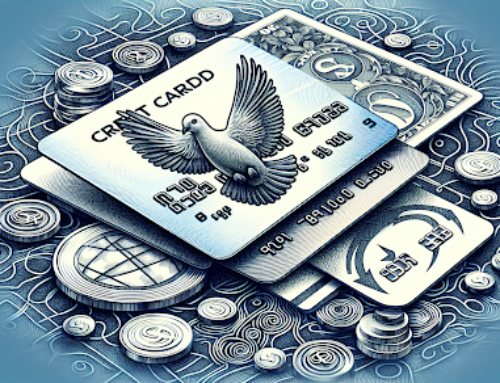BLOGS
3 Common Mistakes When Choosing a Credit Card Processor

In today’s increasingly digital and tech-driven world, it is no longer enough to rely on cash transactions, virtually regardless of industry.
More and more, people are expecting to be able to pay by credit or debit card even in places where payment by cash is still broadly the norm. Outdoor markets and venues are now increasingly taking card payments, as are even the most out-of-the-way bars and restaurants, and much more.
Fortunately for sole traders and established businesses alike, there are now more options available than ever before, when it comes to choosing a credit card processor who will be able to quickly handle your payments in a way that is just right for you.
Even the most broadly minimalist entrepreneurial ventures – such as professional photography – can benefit from portable, wireless card readers courtesy of companies like Paypal.
But, of course, the fact that it is now easier than ever before to find a wide range of credit card payment processors at the drop of a hat, doesn’t mean that the process is entirely without its setbacks or hurdles.
In fact, certain mistakes remain all too common when choosing a credit card processor. Here are three of the most common of those mistakes for you to be mindful of and to avoid.
Not keeping an eye out for unclear fees and costs
When all is said and done, it’s simply an unfortunate fact of life that many businesses will routinely make a habit of misrepresenting themselves via their promotional materials, in a range of different ways.
Easily one of the most common ways in which this plays out, is in regards to businesses not being honest and transparent concerning all the potential fees and costs involved in utilising their services.
Unfortunately, this particular issue is as true with certain credit card processors as it is with any other type of business – with the fees and costs advertised often being a gross misrepresentation of the amount of money you can actually expect to have to spend when push comes to shove.
In credit card processing, the “fees” will be things that your credit card processor establishes and imposes on you, as the price of doing business with them. Some of these fees may be negotiable, others may depend on a variety of external factors.
“Costs,” on the other hand, are the costs of the transactions themselves, as set by the credit card companies – in other words, companies like MasterCard, Visa, and so on.
One thing to be on the lookout for all times, is credit card processors offering deals that seem “too good to be true,” on the basis of a “qualified rate.”
What you need to keep in mind is that the “qualified rate” will be the lowest possible rate you could pay, based on all factors being as carefully arranged as possible so as to ensure minimal cost.
In reality, however, it will tend to be very unlikely indeed that you will be making all – or even most – of your transactions in a way that falls under the “qualified rate” criteria.
Generally, the “non-qualified rate” will encompass transaction types such as online payments, and payments with cards which offer customer rewards to their cardholders.
Clearly, these are likely to make up the bulk of your transactions – and will also tend to be far more expensive than the “qualified rate” you encountered in the initial marketing.
So, what categories of transactions are likely to fall into the “qualified rate” camp?
Typically, only the simplest transactions which involve a customer swiping their card through your card reader, in person.
In addition to all of that, it’s not unusual for credit card processors to include additional fees for things like cancellations and batch processing, and these fees often won’t be listed in a very transparent way.

Agreeing to contractual volume commitments
For anyone running their own business, credit card processing – and payment processing in general – should be as smooth and seamless as possible. It should, ideally, be something that happens essentially “in the background,” and that you barely even have to pay attention to.
One of the very common mistakes that people make when choosing credit card payment processors, however, lies in agreeing to “volume commitments” in their contract with the credit card processor – either in terms of a minimum monthly number of transactions, or a maximum transaction amount.
It should be clear to see why this could absolutely sabotage your business and cause a major blow to your revenue, and to your ability to operate smoothly and effectively, as well.
Generally, if you agree to “maximum transaction” terms, what will happen is that you end up paying substantially higher fees for transactions exceeding a particular threshold limit. In essence, this punishes you for having a good day at the office.
While there might be workarounds for this, such as by breaking up a single transaction into smaller sub-transactions, this is clearly not ideal by any stretch of the imagination.
Likewise, agreeing to meet a certain minimum number of transactions per month can completely hamstring you professionally speaking, especially during periods where you might be experiencing upheavals or unexpected issues.
Be sure to read the fine print, ask the right questions, and avoid this situation.
Accepting liability for data security
Before agreeing to use the services of any credit card payment processor, you should be certain that they have a good suite of anti-fraud mechanisms in effect, and are willing to accept liability for data security breaches, fraud, and other such issues.
If these things aren’t made explicit, or if the company in question doesn’t have good anti-fraud mechanisms, you may well find yourself being liable for data security issues.
Without the shadow of a doubt, this puts you in an extremely tenuous situation, and should be avoided at all costs.
Even beyond your liability, it’s certainly not a sign of quality or professionalism if your credit card payment process doesn’t have these mechanisms in place.











